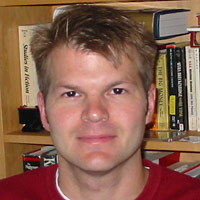{image1}Ah, yes, the All-Star break. For baseball fans, this is a magical time of year -- assuming, of course, your team is still remotely involved in a pennant or wild-card playoff race in mid-July. If not, it's simply three days without having to curse, glower or throw small objects at your television or radio. Or computer screen, as the current case may be.
And no, webcasts, instant scoring updates, and home run hitting contests are not the only things different about the modern-day All-Star break. You see, young fans and readers of this column everywhere, people actually used to give two craps about the All-Star Game. Doesn't that beat all?
Why, you ask? Well, for one thing, games were rarely televised on weekday nights when I was a kid, so merely watching any game was a bonus. Additionally, there was no inter-league play to quell the curiosity of opposing league stars meeting up during the season (don't worry; I won't go all Bob Costas on you). And the game itself had tremendous tradition and history -- Babe Ruth homering in the first All-Star Game at Comiskey Park, Carl Hubbell striking out five studs in succession, Pete Rose disemboweling Ray Fosse at home plate (in an exhibition game, mind you), Reggie Jackson (in an A's uniform) hitting a ball into the light standards at the old Tiger Stadium ... and Stan Musial homering in the bottom of the 12th at County Stadium back when the Braves were the pride of Milwaukee.
Yes, this game was simply cooler back then. Or is that just an evolving old codger's famous lament?
At any rate, the game is once again at Chicago's Comiskey Park, though it's not the same stadium the Babe played in, and now it's named after a phone company. But then again, if you would have told the '33 Yankees about marketing's eventual effect on player salaries, Ted Williams wouldn't have been the only one looking into cryogenics.
The White Sox are hosting their fourth All-Star Game, with the American League leading the series prior to this year's game, 2 to 1. The last game held on Chicago's south side was in 1983, a memorable 13-3 AL win highlighted by Fred Lynn's grand slam, the first in All-Star history.
But twenty years ago represented more than a different time (though the same place) in All-Star history, it was an entire generation of Brewers baseball ago. To wit:
LEAGUES: The Brewers were the defending AL champions on July 6, 1983 in Chicago, which meant that manager Harvey Kuenn skippered the Junior Circuit. This year's team, of course, plays in the National League and is fresh off the worst season in club history.
STARS: Robin Yount (shortstop) and Ted Simmons (catcher) started for the AL, and both Ben Oglivie and Cecil Cooper saw time off the bench. Yount had a sacrifice fly to drive in a run, and Cooper singled and scored after the game was out of reach.
Richie Sexson and Geoff Jenkins won't start, but both figure to ably represent the Brewers, who place two players on the NL squad (Sexson was joined by Jose Hernandez in 2002) for the second straight year.
STANDINGS: Despite coming off the best season in team history in '83, the first 75 games were a struggle for the Brewers. They sat at 38-37 at the break, 4.5 games behind Toronto and in fifth place in the old AL East. A 40-21 stretch through July and August had them breathing down eventual champ Baltimore's neck in early September, but a 10-game losing spell finished off their dreams of a repeat; they finished 87-75, in fifth place, 11 games back.
The '03 Brewers sputtered to just three wins in their last 10 games and sit at 37-56 at the break, a full 12.5 games behind Houston in the NL Central. They need to go 26-43 after the break to avoid another 100-loss season; 33-36 will earn them 70 wins.
THE FUTURE: Paul Molitor and Yount were just 26 and 27, respectively, in 1983. Cooper (33), Simmons (33) and Oglivie (34) were all on the downsides of solid careers. The team hit rough times in '84 and '85, winning just 67 and 71 games after posting winning seasons for six consecutive years.
Sexson (28) and Jenkins (28) are still young, but both are signed only through 2004. The Brewers have no aging stars to rely on, and they haven't had a winning season since 1992. Perhaps Sunday's Futures Game, featuring Brewers minor leaguers Dave Krynzel and J.J. Hardy, will provide column fodder in 2023.
Another difference between the 2003 and 1983 All-Star Games is the added incentive of World Series home-field advantage for Tuesday's winning league, a reaction to last year's Miller Park debacle that unmasked the game for what it's truly become -- a fading tradition that is actually an irritant to some of the league's bigger stars.
It hasn't gotten to that stage yet for the Brewers reps; Jenkins theorized he was the happiest man on the planet when he officially won the online voting for the NL's last roster spot on Wednesday. Perhaps, then, a Brewer will have a say in the postseason after all.
Sports shots columnist Tim Gutowski was born in a hospital in West Allis and his sporting heart never really left. He grew up in a tiny town 30 miles west of the city named Genesee and was in attendance at County Stadium the day the Brewers clinched the 1981 second-half AL East crown. I bet you can't say that.
Though Tim moved away from Wisconsin (to Iowa and eventually the suburbs of Chicago) as a 10-year-old, he eventually found his way back to Milwaukee. He remembers fondly the pre-Web days of listenting to static-filled Brewers games on AM 620 and crying after repeated Bears' victories over the Packers.







